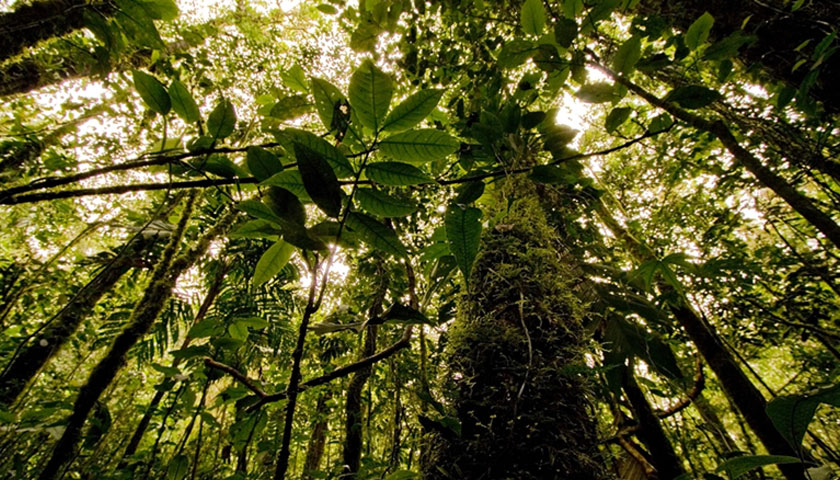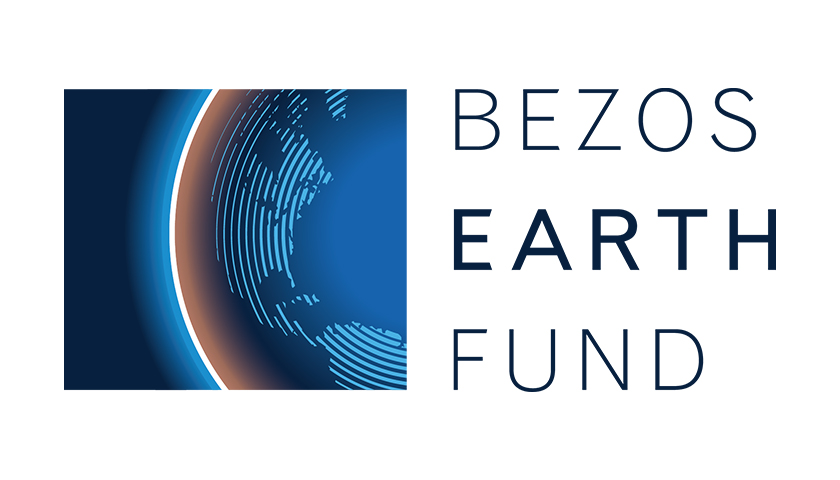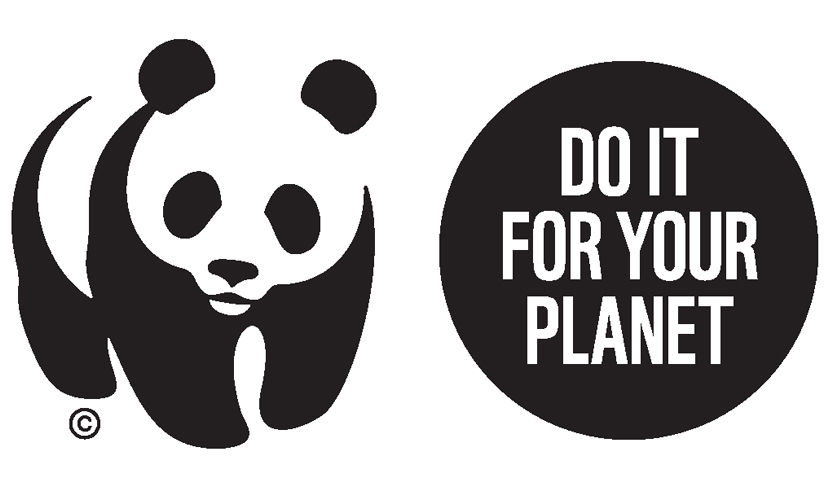At the September 22, 2021 “Transformative Action for Nature and People” event in New York, nine organizations joined together to pledge an unprecedented $5 billion over the next 10 years to support the creation, expansion, management and monitoring of protected and conserved areas of land, inland water and sea, working with Indigenous Peoples, local communities, civil society and governments.
This watershed announcement — to fund efforts to reach 30×30 global goal by strengthening and expanding protected areas and support to Indigenous Guardianship of traditional territory — marks the largest private funding commitment ever made to biodiversity conservation.
Having worked since inception to protect critical ecosystems and create lasting change in how land, freshwater and coastal marine ecosystems are managed, the Gordon and Betty Moore Foundation is honored to collaborate in ensuring that 30 percent of the planet is protected and conserved in the most important places for biodiversity by 2030. To that end, the Moore Foundation joined Arcadia — a charitable fund of Lisbet Rausing and Peter Baldwin; Bezos Earth Fund; Bloomberg Philanthropies; Nia Tero; Rainforest Trust; Re:wild; Wyss Foundation; and the Rob and Melani Walton Foundation in committing to help address three of the planet’s most life-threatening crises: the climate crisis, extinction crisis, and health crisis — with an emphasis on the role of nature and the leadership of Indigenous Peoples in solutions to these crises.
Specifically, these private funders together launched the Protecting Our Planet Challenge, and are supporting projects around the globe that will help achieve the 30×30 initiative as proposed by the High Ambition Coalition (HAC) for Nature and People, a group of 70 nations. Earlier in September, the International Union for the Conservation of Nature (IUCN), which includes governments and more than 1,400 civil society organization and Indigenous Peoples’ organizations, also endorsed the 30×30 goal as part of the post-2020 framework of the United Nations Convention on Biological Diversity.
Studies show that protected areas are one of the most cost-effective ways to safeguard nature, vulnerable human populations, and climate, provided they are well-managed and respect the rights and needs of Indigenous Peoples and local communities. Research findings indicate that the conservation and effective management and guardianship of at least 30% of the planet in the most important places for biodiversity could protect up to 80% of plant and animal species, and secure 60% of the planet’s carbon stocks and 66% of the planet’s clean water.
Addressing Earth’s crises with the nature-based 30×30 solution is a clear win-win-win for biodiversity, climate and people. The investment by the private funders launching the challenge will fund projects advancing 30×30, building collective efforts behind a more equitable, carbon neutral and nature positive future. Meeting this goal will require: greater ambition, innovation and collaboration between governments, companies, civil society, Indigenous Peoples and local communities; and advancing the enduring power and the rights of Indigenous Peoples and local communities as guardians of irreplaceable places upon which we all depend.
Said Lisbet Rausing and Peter Baldwin of Arcadia: “Protecting at least 30% of our planet by 2030 is not a luxury but a vital measure to preserve the Earth’s health and wellbeing. Private donors have a role to play, but this goal requires the commitment of all governments and of the communities that manage some of the world’s most biodiverse landscapes. We are delighted to support the Protecting Our Planet Coalition Challenge and hope that this initiative will motivate others to join us.”
“This is the decisive decade for tackling climate change, and protecting the lands and waters that serve as our life support system is an imperative in that fight,” said Andrew Steer, president and CEO of the Bezos Earth Fund. “Governments, corporations, philanthropies and NGOs have a collective role to play in reversing nature’s decline. By prioritizing the voices of Indigenous Peoples and frontline communities, protecting our most delicate and vital natural resources, and creating more equitable access to nature for all, we will ultimately help humanity and every living species on our planet thrive.”
“A global 30×30 conservation target is not an arbitrary aspiration — it is a scientific and moral necessity,” said Antha Williams, Global Head of Climate and Environment Programs at Bloomberg Philanthropies. “We need increased political leadership and funding to slow the alarming loss of coral reefs, mangroves, and other ecosystems critical to mitigating and adapting to climate change. Bloomberg Philanthropies is pleased to join the Protecting Our Planet Challenge, an important movement to support communities whose food, livelihoods, and health are under threat by the projected worst of climate change and loss of biodiversity.”
“Protecting 30% of our planet by 2030 will take an unprecedented commitment of philanthropic, public, and private sector resources over the next decade,” explained Harvey Fineberg, president of the Gordon and Betty Moore Foundation. “If we succeed we will have, as our esteemed founder Gordon Moore has said, “some hope of actually winning [in the environment] rather than just losing slowly.”
Vicky Tauli-Corpuz, Nia Tero Board Chair and former UN Special Rapporteur on the Rights of Indigenous Peoples said: “Investing in the rights of Indigenous peoples and their guardianship of territory is one of the most important, and most overlooked, strategies for addressing the existential threats of climate change and biodiversity loss. As an organization committed to securing Indigenous guardianship of thriving ecosystems, we applaud these leading-edge funders for dramatically expanding support of this essential pathway to achieve the 30×30 targets.”
Said Dr. James C. Deutsch, CEO, Rainforest Trust: “Halting and reversing biodiversity loss and climate change requires expanding protected and conserved areas especially in tropical forests, which has been Rainforest Trust’s mission for over thirty years. Developing nations and Indigenous Peoples need financing to achieve this, which is why we are pledging to more than double our level of funding between now and 2030 and urging other private and public funders to do the same.”
“Nature-based solutions, especially the protection and restoration of forests, wetlands, mangroves, and other ecosystems, are, by far, the most accessible and cost-effective solutions to the ongoing climate, biodiversity, and human health crises,” said Wes Sechrest, Re:wild CEO and chief scientist. “To protect and restore the most irreplaceable areas on land and sea, we urgently need to bring together resources from governments, philanthropy, and companies to support coalitions of Indigenous and local communities, civil society, and government agencies. This new alliance will help accomplish this by catalyzing on-the-ground conservation impact.”
“It’s clear there is a way forward to address the growing global biodiversity and climate crises — and it’s equally clear that now is the time to act. We must achieve our global conservation goals, such as the 161 ‘anchor areas’ in Africa as identified by African Parks, so we can protect biodiversity, sustain the millions of people that live in the region, and store carbon,” said Rob and Melani Walton of the Rob and Melani Walton Foundation. “We urge governments and businesses around the world to match our unwavering commitment to protecting people and the planet, so communities and nature can thrive together.”
“For our grandchildren and their grandchildren to inherit a balanced, functioning planet, we have to rapidly slow the rate at which our economies are destroying nature,” said Hansjörg Wyss, Founder and Chairman of the Wyss Foundation. “This challenge is why I continue working alongside local communities, Indigenous Peoples, and nations to quickly narrow the enormous gap between how little of the natural world is protected and how much needs to be protected.”
The Protecting Our Planet Challenge urgently calls for additional private and governmental financial support behind 30×30 as the climate crisis is threatening communities and wildlife across the globe; 75 percent of the land and most of the ocean have been transformed by human impact; a million species are threatened by extinction this century; and the COVID-19 pandemic that rages across the world and is linked to wildlife trade has killed more than 4.5 million people.
Learn More: The founding organizations of the Protecting Our Planet Challenge
Arcadia — a charitable fund of Lisbet Rausing and Peter Baldwin
Arcadia is a charitable fund of Lisbet Rausing and Peter Baldwin. It supports charities and scholarly institutions that preserve cultural heritage and the environment. Arcadia also supports projects that promote open access and all of its awards are granted on the condition that any materials produced are made available for free online.
Bezos Earth Fund
The Bezos Earth Fund is Jeff Bezos’s $10 billion commitment to fund scientists, activists, NGOs, and other actors that will drive climate and nature solutions. By allocating funds creatively, wisely, and boldly, the Bezos Earth Fund has the potential for transformative influence in this decisive decade. Funds will be fully allocated by 2030 — the date by which the United Nations’ Sustainable Development Goals must be achieved.
Bloomberg Philanthropies
Bloomberg Philanthropies invests in 810 cities and 170 countries around the world to ensure better, longer lives for the greatest number of people. The organization focuses on five key areas for creating lasting change: the Arts, Education, Environment, Government Innovation, and Public Health. Bloomberg Philanthropies encompasses all of Michael R. Bloomberg’s giving, including his foundation, corporate, and personal philanthropy as well as Bloomberg Associates, a pro bono consultancy that works in cities around the world. In 2020, Bloomberg Philanthropies distributed $1.6 billion. For more information, please visit bloomberg.org or follow us on Facebook, Instagram, YouTube, and Twitter.
Gordon and Betty Moore Foundation
The Gordon and Betty Moore Foundation fosters path-breaking scientific discovery, environmental conservation, patient care improvements and preservation of the special character of the San Francisco Bay Area. Our Environmental Conservation Program focuses on safeguarding the healthy ecosystems that sustain us.
Re:wild
Re:wild protects and restores the wild. We have a singular and powerful focus: the wild as the most effective solution to the interconnected climate, biodiversity and human health crises. Founded by a group of renowned conservation scientists together with Leonardo DiCaprio, Re:wild is a force multiplier that brings together Indigenous peoples, local communities, influential leaders, nongovernmental organizations, governments, companies and the public to protect and rewild at the scale and speed we need. Learn more at rewild.org.
Nia Tero
Everywhere Indigenous peoples thrive, their homelands and waters thrive, benefiting all peoples of this warming planet. This reality inspired Nia Tero’s mission of working in solidarity with Indigenous peoples to strengthen guardianship of the Earth. All of our work is alongside Indigenous peoples’ right, capacity, and acceptance of responsibility to sustain thriving natural systems within their collective territories. Our strategies fall into two interwoven pathways: 1) direct partnership with Indigenous peoples securing guardianship of their homelands and waters; and 2) efforts to expand recognition and support for Indigenous guardianship globally.
Rainforest Trust
Rainforest Trust creates and expands protected areas in rainforests and other tropical habitats by channeling private donor support to local partners. Since 1988, our cost-effective conservation model has protected 37 million acres, helping to save species from extinction, protect biodiversity, secure land titles for indigenous people, and prevent the release of carbon that causes climate change.
Rob and Melani Walton Foundation
Rob and Melani Walton Foundation: The mission of the Rob and Melani Walton Foundation is to elevate people, planet, and purpose by changing what people feel is possible and know is doable. The Rob and Melani Walton Foundation seeks partners who focus on the essential and interconnected elements of sustaining life, advancing all forms of knowledge, promoting understanding of healing, and increasing the sustainability of people and our planet.
Wyss Foundation
In 2018 Hansjörg Wyss and the Wyss Foundation met the nature crisis by launching the Wyss Campaign for Nature. Wyss has committed $1.5 billion to the Campaign before the end of this decade, supporting Indigenous Peoples, local communities, and nations in their efforts to protect 30% of the planet by 2030.



